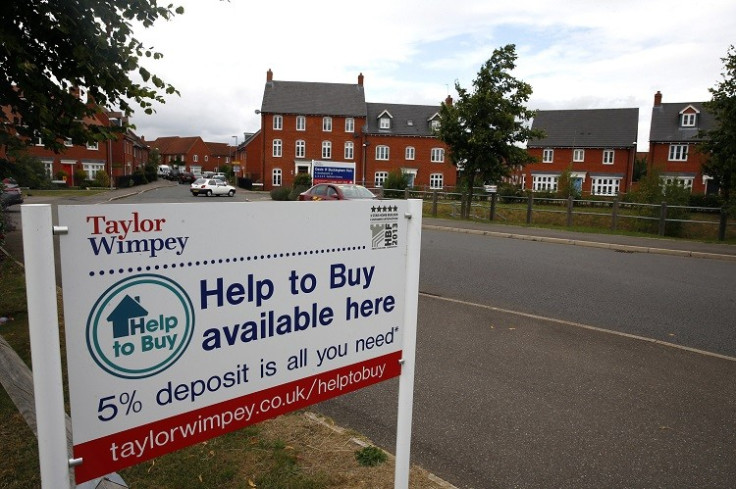UK Housing: Help to Buy Lifts Over 27,000 onto Property Ladder

More than 27,000 people have been lifted onto the UK property ladder with a foot up from the Help to Buy scheme, according to government figures.
Higher demand in the housing market thanks to Help to Buy, low interest rates on mortgages, and a strengthening economic recovery has forced up house prices because supply is constricted.
The Office for National Statistics (ONS) said house prices rose by 9.1% across the year to February 2014, reaching an average of £253,000.
And this rise in house prices is encouraging builders to increase their residential housing work, though the supply of new homes still falls far short of what is needed.
"Thousands of people have now achieved their dream of becoming homeowners through Help to Buy," said Kris Hopkins, UK housing minister.
"Hard working families are getting the homes they want, while housebuilding is at its highest level since 2007 and climbing."
The Department for Communities and Local Government (DCLG) said 19,394 sales had been made using an interest free equity loan under the first part of the Help to Buy scheme, which launched in March 2013.
A further 5,173 sales had been made since March 2012 through NewBuy, a similar scheme that existed before Help to Buy but has now been folded into it.
And there were 2,572 sales completed under the second part of Help to Buy, a mortgage guarantee scheme, between its launch on 8 October and 31 January.
Controversy surrounds the mortgage guarantee over fears it will help fuel a housing bubble.
Critics of support for the mortgage market say fuelling housing demand while interest rates are abnormally low, thanks to the Bank of England's record-low 0.5% base rate, runs the risk of a credit bubble.
This is because when rates rise again and so do monthly repayment costs on mortgages, there could be a wave of defaults leading to another painful unwinding of house prices.
But the DCLG figures suggest there has been a limited appetite for mortgages tied to Help to Buy's mortgage guarantee.
And equity loan schemes have existed for years in the UK, so those making use of the first part of Help to Buy could be a natural consequence of the emerging economic recovery.
"It is still very early days for the Help to Buy mortgage guarantee scheme, after all the majority of lenders only joined the scheme in January," said Matthew Pointon, property economist for Capital Economics.
"But we have long been of the view that it will not be as successful as the equity loan component. Primarily, that is due to its cost.
"While Help to Buy equity loans are currently priced at around 2.5% to 3%, nearly all lenders are offering 95% LTV loans at an interest rate of just over 5%.
"At that rate, renting will be the cheaper option for the majority of households. And while equity loans are a great deal for both housebuilders and mortgage lenders, and are therefore heavily promoted, the complexity of a mortgage guarantee means many lenders are probably happy for the scheme to wither on the vine."
The overwhelming majority of those using the Help to Buy scheme were first time buyers, accounting for 87.5% of sales using the equity loan and 82% using a mortgage guarantee.
© Copyright IBTimes 2025. All rights reserved.






















